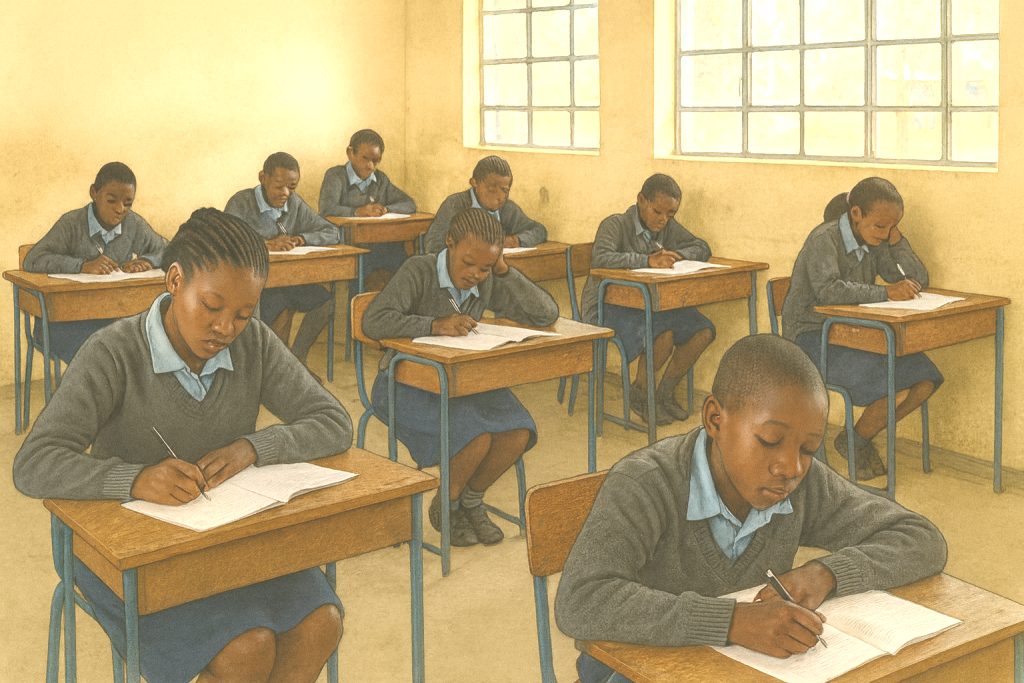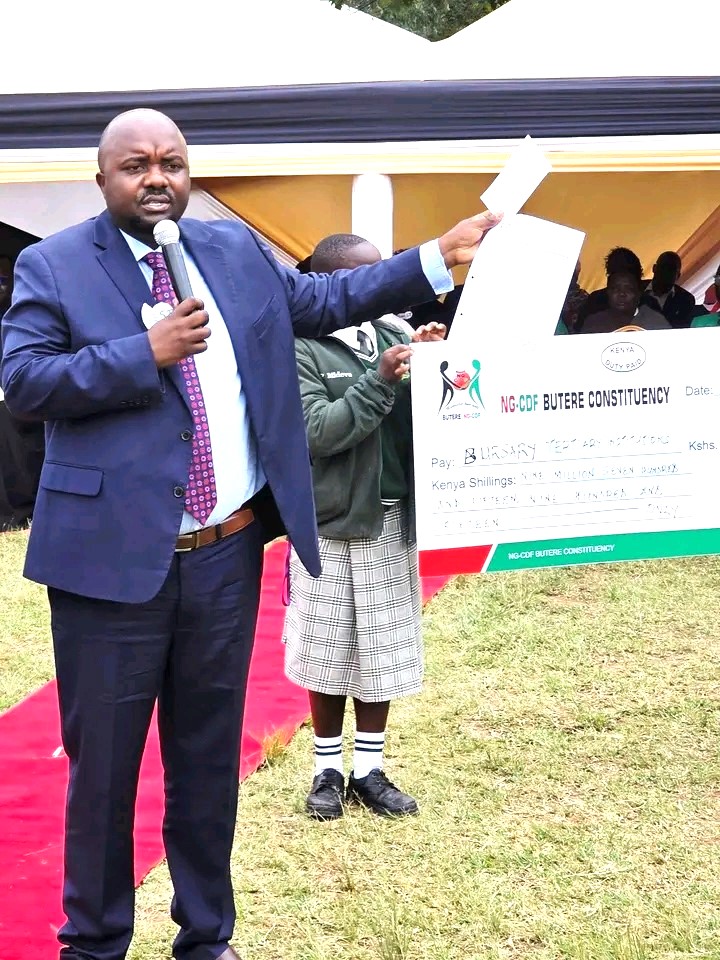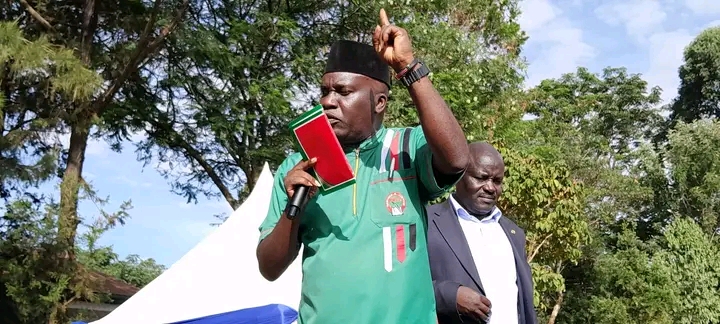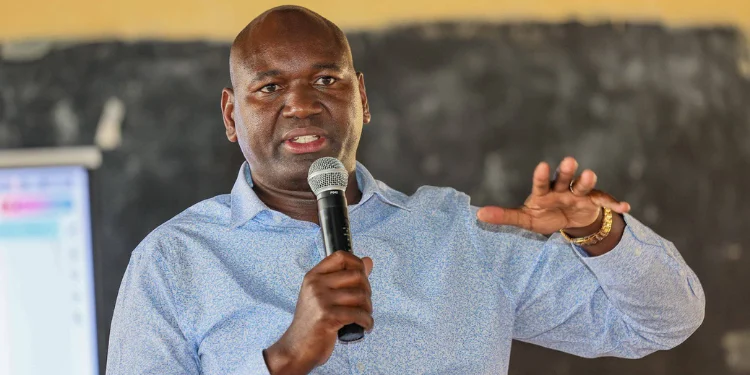On Monday morning, more than 3.4 million candidates across the country will sit for their national examinations — the highest number in Kenya’s history. This milestone reflects the steady expansion of education access under the government’s 100 percent transition policy and the tireless efforts of teachers, parents, and communities. But beyond the numbers lies a deeper call: a moral and national duty to safeguard the integrity of examinations.
Every year, the examination season comes with heightened expectations, anxiety, and vigilance. It is not just a test of learners’ knowledge — it is a test of our national conscience. The credibility of Kenya’s education system depends on whether we can administer exams fairly, securely, and transparently. It is during these few critical weeks that our country’s moral fibre is laid bare.
This year’s cohort represents the full strength of Kenya’s competency-based education transition. Candidates in Grade Six will sit for the Kenya Primary School Education Assessment (KPSEA), those in Grade Eight for the Kenya Junior School Education Assessment (KJSEA), while thousands more will be taking the Kenya Certificate of Secondary Education (KCSE). Together, they represent the dreams and resilience of millions of families.
The scale is staggering. Managing logistics for over 3.4 million candidates, spread across thousands of centres, requires seamless coordination between the Ministry of Education, Kenya National Examinations Council (KNEC), Teachers Service Commission (TSC), and the security agencies. Each examination paper must move from the secure container to the exam room with precision and integrity. Any breach, however small, risks undermining public trust and the future of innocent learners.
Integrity in examinations is not a luxury it is a national necessity. The minute we allow shortcuts, leaks, or collusion, we erode the foundation of fairness that holds our education system together. It is unfair to the honest candidate who toiled day and night, believing in the value of merit. It is also unfair to the nation, which depends on a credible system to identify and nurture genuine talent.
Examination malpractices are not merely academic crimes; they are moral failures. They corrupt values, distort meritocracy, and breed cynicism in young minds. When a student passes through deceit, they learn that corruption pays. When a teacher or supervisor compromises an exam, they betray their calling. When a parent buys access to leaked papers, they teach their child that integrity can be traded for convenience.
In the end, we all lose – as citizens, as professionals, and as a nation.
The success of this examination season rests heavily on three key groups: centre managers, supervisors, and invigilators. They are the custodians of the nation’s trust. For a few intense weeks, they hold in their hands not just exam papers but the collective hopes of millions.
Centre managers, mostly head teachers and principals, are the first line of defence. They must ensure that papers are received, stored, and opened strictly according to regulations. Supervisors and invigilators, on the other hand, must maintain vigilance in examination rooms — ensuring fairness, calm, and transparency. A single act of negligence or collusion could jeopardize the integrity of an entire centre.
Security officers stationed at every distribution point and centre also play a critical role. Their presence is not only to deter malpractice but also to reassure the public that exams are a national matter of utmost seriousness.
Parents, too, must resist the temptation to seek undue advantage for their children. The obsession with grades at all costs has fueled unethical behaviours from buying leaked papers to hiring ghost writers. True success is not measured by the grades one attains through deceit but by the character, effort, and honesty one cultivates along the way.
The public must equally reject the culture of celebrating instant results without questioning the process. A society that rewards shortcuts is one that destroys its moral foundation.
READ ALSO:
Every examination season should remind us that integrity is the cornerstone of nation-building. Just as we cannot build a strong economy on fake currency, we cannot build a strong education system on fake results. The certificates our learners will receive are not just pieces of paper they are symbols of trust between the learner and society.
It is therefore encouraging that the Ministry of Education and KNEC have consistently tightened security measures from digitized tracking of papers, enhanced container surveillance, to swift disciplinary action against culprits. These efforts must be sustained and strengthened.
However, the ultimate guarantee of examination credibility lies not in technology or surveillance, but in personal integrity – in the choices made by each teacher, officer, and learner when no one is watching.A
As the first examination bell rings on Monday morning, we must all pause and reflect: these are our children, our schools, our future. Let us give them a level playing field where success is earned, not stolen.
To the 3.4 million candidates: walk into those exam rooms with confidence and honesty. To teachers and administrators: guard the integrity of the process as you would your own name. To parents and the public: trust the process and reject shortcuts.
Credible examination results mean everything. They honour effort, reward integrity, and preserve the dignity of education. In protecting the sanctity of exams, we are not merely securing marks – we are safeguarding the soul of the nation.
By Ashford Kimani
Ashford teaches English and Literature in Gatundu North Sub-county and serves as Dean of Studies.
You can also follow our social media pages on Twitter: Education News KE and Facebook: Education News Newspaper for timely updates.
>>> Click here to stay up-to-date with trending regional stories
>>> Click here to read more informed opinions on the country’s education landscape






